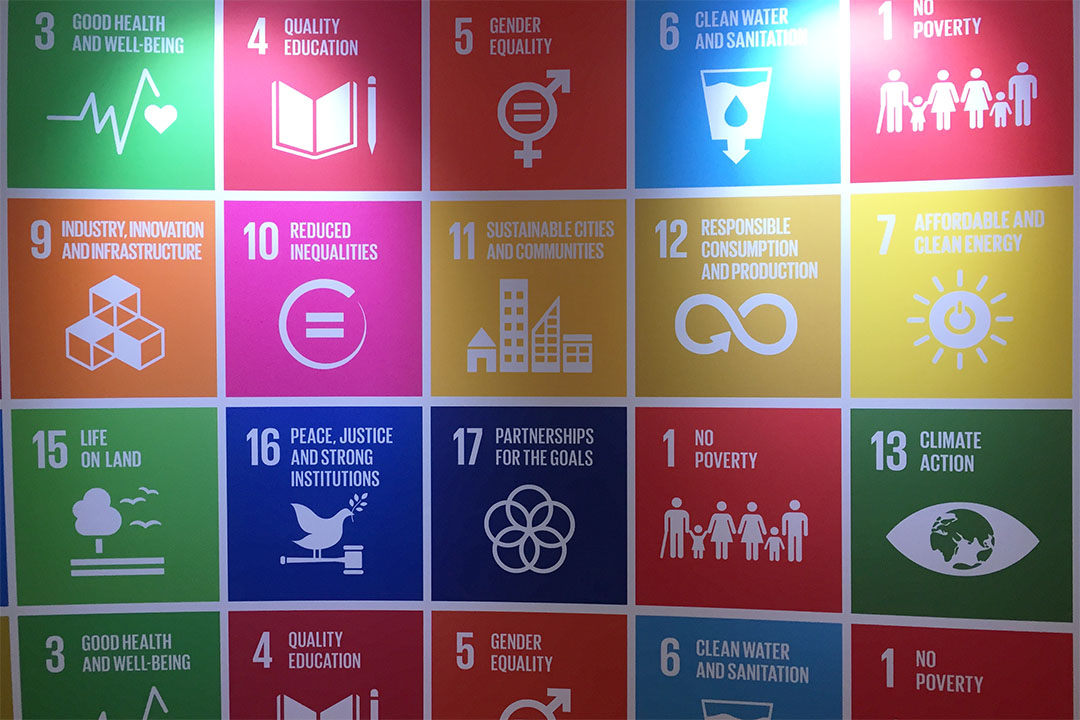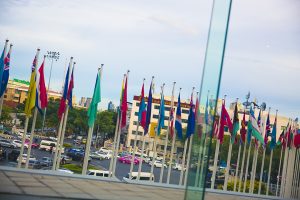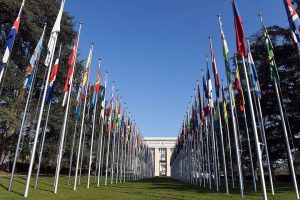March traditionally has a strong focus on water and sanitation issues – with the celebration of World Water Day on 22 March – and 2018 will bring back-to-back events all month, with the convening of the World Water Forum, the launch of the International Decade for Action – Water for Sustainable Development, and the release of several high-level reports with recommendations for enhancing clean water and sanitation (SDG 6). March will also bring events and report launches aimed at providing recommendations for and information on the status of implementation of SDGs on sustainable cities and communities (SDG 11), climate (SDG 13), biodiversity (SDG 15), and responsible consumption and production (SDG 12). In addition, the first two regional meetings for the High-level Political Forum on Sustainable Development (HLPF) will convene, as part of preparations for the July review of implementation of the 2030 Agenda on Sustainable Development.
The first week of March will bring focus to the intersection of SDG 13 and SDG 11. The inaugural Cities and Climate Change Science Conference, co-sponsored by the Intergovernmental Panel on Climate Change (IPCC), UN Environment Programme (UN Environment), the World Meteorological Organization (WMO) and others, will share the latest scientific research on climate change, seeking to inspire regional climate action across cities. The deliberations will also inform upcoming IPCC reports, including the Special Report on Cities and Climate Change that is expected as part of the IPCC’s seventh assessment (AR7) cycle (2023-2028).
Meetings of both the climate and biodiversity scientific advice bodies will convene in March. The 47th session of the IPCC (IPCC 47) is expected to, according to our Earth Negotiations Bulletin colleagues, “deal with as much of its business as possible for 2018 so that the October IPCC session will be able to focus on approval of the Special Report on impacts of global warming of 1.5°C (SR15).” The IPCC is currently in its Sixth Assessment cycle, during which it will produce three Special Reports, a Methodology Report on national greenhouse gas inventories and the Sixth Assessment Report (AR6).
The following week, our Earth Negotiations Bulletin colleagues expect the Intergovernmental Science-Policy Platform on Biodiversity and Ecosystem Services (IPBES-6) to finalize and launch five science-policy assessment reports and summaries for policy makers, a thematic assessment on Land Degradation and Restoration, and regional assessments on human induced challenges and opportunities in the Americas, Asia and the Pacific, Africa, and Europe and Central Asia.
In the lead up to March 22, when World Water Day is celebrated annually, policymakers will launch reports and host high-level events focused on water and sanitation policy. The report of the High Level Panel on Water is expected to be released in mid-March. This Panel, which represents the first time the UN and the World Bank have convened a panel at the Heads of State and Government level, was charged with providing leadership to “champion a comprehensive, inclusive and collaborative way of developing and managing water resources, and improving water and sanitation related services.” On 19 March, the 2018 edition of the World Water Development Report, subtitled ‘Nature-based solutions for Water,’ will be launched. In addition, the global water and sanitation community will gather in Brasilia, Brazil, for the 8th World Water Forum, and the UN General Assembly President will convene a high-level event at UN Headquarters to launch the International Decade for Action – Water for Sustainable Development (2018-2028).
Also in March, the Mid-term Review of the 10-year framework of programmes on sustainable consumption and production patterns (10YFP) is scheduled to conclude. The 10YFP is the focus of the first target under SDG 12 (responsible consumption and production), which is among the sub-set of six SDGs that will be focused on during the July 2018 meeting of the HLPF. Discussions during the second meeting of the Intersessional Process for Considering the Strategic Approach to International Chemicals Management (SAICM) and the Sound Management of Chemicals and Waste Beyond 2020 will contribute to the fourth target under SDG 12, which calls for achieving, by 2020, the environmentally sound management of chemicals and all wastes throughout their life cycle, in accordance with agreed international frameworks.
Meetings of the sustainable development forums of the regional economic commissions will bookend March. At the beginning of the month, from 1-2 March, the Regional Forum on Sustainable Development (RFSD) for the UN Economic Commission for Europe (UNECE) region will discuss the implementation of the 2030 Agenda and its SDGs, with a focus on the sub-set of SDGs to be reviewed at HLPF 2018: SDG 6 (clean water and sanitation), SDG 7 (affordable and clean energy), SDG 11 (sustainable cities and communities), SDG 12 (responsible consumption and production), SDG 15 (life on land) and SDG 17 (partnerships for the goals). At the end of the month, from 28-30 March, the Fifth Asia-Pacific Forum on Sustainable Development (APFSD) will focus on the theme, ‘Transformations towards sustainable and resilient societies.’
Finally, the Global Festival of Action for Sustainable Development will provide a different viewpoint for assessing SDG action, with a focus on innovation and disruptive change, citizen engagement, and communicating the SDGs. We will be watching for the recommendations, lessons learned and new directions that all of these events and report launches bring to the attention of the sustainable development community, as we move one month closer to 2030.
Lynn Wagner, Elena Kosolapova, Lauren Anderson, Stefan Jungcurt and Faye Leone










